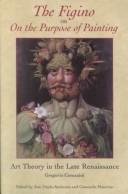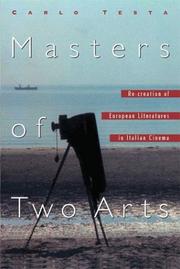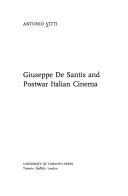| Listing 1 - 10 of 26 | << page >> |
Sort by
|
Periodical
ISSN: 23256680 Year: 1924 Publisher: Menasha, Wis. : George Banta Publ. Co.,
Abstract | Keywords | Export | Availability | Bookmark
 Loading...
Loading...Choose an application
- Reference Manager
- EndNote
- RefWorks (Direct export to RefWorks)
Italian language --- Italian philology --- Italian philology. --- Kultur. --- Literatur. --- Italienischunterricht. --- Fachdidaktik. --- Study and teaching --- Study and teaching. --- Italien. --- Italienisch. --- Kultur --- Literatur --- Italienischunterricht --- Fachdidaktik --- Italien --- Romance languages --- Didaktik --- Italienischdidaktik --- Italienisch --- Unterricht --- Belletristik --- Dichtung --- Schöne Literatur --- Sprachkunst --- Wortkunst --- Buch --- Schriftsteller --- Kulturphilosophie --- Zivilisation --- Italia --- Königreich Italien --- Repubblica Italiana --- Italiya Respublikasi --- Italijos Respublika --- Olaszorszaǵ --- Olasz Koz͏̈taŕsasaǵ --- Regno d'Italia --- Italienische Republik --- République Italienne --- Yidali-gongheguo --- Italy --- Italiener --- Königreich Sardinien --- Republik von Salò --- 17.03.1861 --- -Italian language --- Olasz Koz̈taŕsasaǵ --- Język włoski --- Język włoski. --- Königreich Italien --- Olaszorszaǵ --- Olasz Koz̈taŕsasaǵ --- République Italienne --- Königreich Sardinien --- Republik von Salò --- Schöne Literatur --- Filologia italiana. --- Italià (Llengua)
Periodical
ISSN: 11206861 Year: 1990 Publisher: [Firenze] : [All'Insegna del Giglio],
Abstract | Keywords | Export | Availability | Bookmark
 Loading...
Loading...Choose an application
- Reference Manager
- EndNote
- RefWorks (Direct export to RefWorks)
Archaeology --- Archäologie --- Zeitschrift --- Data processing --- Data processing. --- Italien --- Social Sciences --- Archeology --- archaelogy --- archaeological computing --- theory and methods in archaeology --- Periodikum --- Zeitschriften --- Presse --- Fortlaufendes Sammelwerk --- Vor- und Frühgeschichte --- Bodendenkmalpflege --- Anthropology --- Auxiliary sciences of history --- History --- Antiquities --- Italia --- Königreich Italien --- Repubblica Italiana --- Italiya Respublikasi --- Italijos Respublika --- Olaszorszaǵ --- Olasz Koz̈taŕsasaǵ --- Regno d'Italia --- Italienische Republik --- République Italienne --- Yidali-gongheguo --- Italy --- Italiener --- Königreich Sardinien --- Republik von Salò --- 17.03.1861 --- -Archaeology --- -archaelogy

ISBN: 0802035744 080208446X 9786612014642 1282014641 1442681276 9781442681279 9781282014640 9780802035745 9780802084460 Year: 2002 Publisher: Toronto
Abstract | Keywords | Export | Availability | Bookmark
 Loading...
Loading...Choose an application
- Reference Manager
- EndNote
- RefWorks (Direct export to RefWorks)
Of the many treatises written in Italy during the Counter-Reformation, none is more illustrative of the intellectual fermentation of the period than Comanini's work on the purpose of painting, Il Figino overo del fine della Pittura (1591). Although the importance of Il Figino has long been recognized, the text has remained largely inaccessible to many scholars throughout the world. This first complete English translation will make the work available to those readers for the first time. In Il Figino, Comanini addresses all of the most hotly debated aesthetic issues of the time, drawing on an array of classical, medieval and Renaissance sources, including Plato, Aristotle, Horace, Mazzoni, Tasso and Paleotti. The editor and translator provide copious notes which clarify Comanini's aesthetic and theological references, as well as a lucid introduction that places the issues and debates in context. Comanini's impressive erudition makes his treatise an excellent barometer of the state of scholarship in the Counter-Reformation era. This translation is a long-overdue addition to the field of Renaissance studies.
Painting --- Aesthetics --- Arts --- Arts, Fine --- Arts, Occidental --- Arts, Western --- Fine arts --- Humanities --- Philosophy --- Oil painting --- Painting, Primitive --- Paintings --- Graphic arts --- Arts, Primitive --- Radio broadcasting Aesthetics --- Painting - Early works to 1800 --- Aesthetics - Early works to 1800 --- Arts - Early works to 1800 --- Figino, Giovanni Ambrogio. --- Italien --- Italia --- Königreich Italien --- Repubblica Italiana --- Italiya Respublikasi --- Italijos Respublika --- Olaszorszaǵ --- Olasz Koz̈taŕsasaǵ --- Regno d'Italia --- Italienische Republik --- République Italienne --- Yidali-gongheguo --- Italy --- Italiener --- Königreich Sardinien --- Republik von Salò --- 17.03.1861 --- -Painting
Periodical
ISSN: 22402802
Abstract | Keywords | Export | Availability | Bookmark
 Loading...
Loading...Choose an application
- Reference Manager
- EndNote
- RefWorks (Direct export to RefWorks)
An international, multidisciplinary journal dealing with agricultural production, biotechnology, food security, environment, remote sensing and natural resources evaluation, economics and social science, rural development and soil science
agriculture --- food security --- environment --- economics and social science --- rural development --- Agriculture --- Agriculture. --- Landwirtschaft. --- Zeitschrift. --- Environmental aspects --- Environmental aspects. --- Developing countries. --- Italien. --- Periodikum --- Zeitschriften --- Presse --- Fortlaufendes Sammelwerk --- Agrarwirtschaft --- Agrarsektor --- Landwirtschaftlicher Sektor --- Primärer Sektor --- Landbau --- Environmental protection --- Farming --- Husbandry --- Industrial arts --- Life sciences --- Food supply --- Land use, Rural --- Italia --- Königreich Italien --- Repubblica Italiana --- Italiya Respublikasi --- Italijos Respublika --- Olaszorszaǵ --- Olasz Koz̈taŕsasaǵ --- Regno d'Italia --- Italienische Republik --- République Italienne --- Yidali-gongheguo --- Italy --- Italiener --- Königreich Sardinien --- Republik von Salò --- 17.03.1861 --- -Emerging nations --- Fourth World --- Global South --- LDC's --- Least developed countries --- Less developed countries --- Newly industrialized countries --- Newly industrializing countries --- NICs --- Third World --- Underdeveloped areas --- Underdeveloped countries --- Primärer Sektor

ISBN: 0802084753 0802036406 1442677112 9781442677111 9780802036407 9780802084750 Year: 2002 Volume: *7 Publisher: Toronto University of Toronto Press
Abstract | Keywords | Export | Availability | Bookmark
 Loading...
Loading...Choose an application
- Reference Manager
- EndNote
- RefWorks (Direct export to RefWorks)
Carlo Testa demonstrates that while pairings of famed directors and writers are commonplace in modern Italian cinema, the study of the interrelation between Italian cinema and European literature has been almost completely neglected in film scholarship.
Motion pictures --- Motion pictures and literature --- European literature --- Literature and motion pictures --- Moving-pictures and literature --- Literature --- History --- Film and video adaptations. --- Film and video adaptations --- Italy --- Italien --- Italy. --- Italia --- Italian Republic --- Italianska republika --- Italʹi͡anskai͡a Rėspublika --- Italie --- Italii͡ --- Italii͡a Respublikasi --- Italiĭsʹka Respublika --- Itālija --- Itālijas Republika --- Italijos Respublika --- Italikē Dēmokratia --- Īṭāliy --- Italiya Respublikasi --- It'allia --- It'allia Konghwaguk --- İtalya --- İtalya Cumhuriyeti --- Iṭalyah --- Iṭalye --- Itaria --- Itaria Kyōwakoku --- Jumhūrīyah al-Īṭālīyah --- Kgl. Italienische Regierung --- Königliche Italienische Regierung --- Laško --- Lýðveldið Ítalía --- Olasz Köztársaság --- Olaszország --- Regno d'Italia --- Repubblica italiana --- Republiḳah ha-Iṭalḳit --- Włochy --- Yidali --- Yidali Gongheguo --- Königreich Italien --- Repubblica Italiana --- Olaszorszaǵ --- Olasz Koz̈taŕsasaǵ --- Italienische Republik --- République Italienne --- Yidali-gongheguo --- Italiener --- Königreich Sardinien --- Republik von Salò --- 17.03.1861 --- -Motion pictures --- -European literature

ISBN: 1282008137 9786612008139 1442675357 0802071414 0802007759 9781442675353 9781282008137 9780802007759 9780802071415 Year: 1996 Publisher: Toronto
Abstract | Keywords | Export | Availability | Bookmark
 Loading...
Loading...Choose an application
- Reference Manager
- EndNote
- RefWorks (Direct export to RefWorks)
One of the founding fathers of the Neo-realist movement and a Communist dedicated to populist filmmaking, Guiseppe De Santis (b. 1917) has been a significant force in Italian cinema. In spite of his crucial contribution De Santis has received little critical recognition and his work has been largely excluded from the canon of traditional cinematic teaching. In this first book-length study of De Santis, Antonio Vitti explores the filmmaker's life and work, and addresses why he has been marginalized as a result of the politics of critical reception in Italian cinema and within the academy. Through critical analysis of such films as Riso amaro (Bitter Rice), Non c'e pace tra gli ulivi ( No Peace Among the Olives), and Cesta Duga Godinu Dana (The One-Year-Long Road), Vitti offers an informative profile of a director who refused to compromise what were often unpopular political and aesthetic principles. De Santis emerged as a strong opponent of government censorship in Fascist Italy and strove throughout his career to remain faithful to his political objectives: to create a genuine popular narrative voice, and to offer, through filmmaking, a form of entertainment for the masses and a means of promoting social and political change. At the same time, possessed of considerable technical abilities and a passion for formalized beauty and sensuality, De Santis resisted the rigid rules for socio-realistic representation dictated by the Soviet Union. He conformed neither to the mainstream nor to the leftist critical expectations of his day. He anticipated, in his own critical approach, the direction of contemporary film theory, and focused on the role of the medium itself as a means of mass communication and a repository of collective imagination.Vitti draws on his extensive personal interviews with De Santis as well as on the latter's previously unpublished writings. This volume captures the intelligence, passion, aesthetic flair, and occasionally fiery temperament of this important filmmaker.
Motion pictures --- Realism in motion pictures. --- Motion picture producers and directors --- History. --- De Santis, Giuseppe, --- Realism in moving-pictures --- Biography. --- Santis, Giuseppe de, --- De Santis, Beppe, --- Santis, Beppe de, --- De Santis, Beppe --- Italien --- Italy. --- Italia --- Italian Republic --- Italianska republika --- Italʹi͡anskai͡a Rėspublika --- Italie --- Italii͡ --- Italii͡a Respublikasi --- Italiĭsʹka Respublika --- Itālija --- Itālijas Republika --- Italijos Respublika --- Italikē Dēmokratia --- Īṭāliy --- Italiya Respublikasi --- It'allia --- It'allia Konghwaguk --- İtalya --- İtalya Cumhuriyeti --- Iṭalyah --- Iṭalye --- Itaria --- Itaria Kyōwakoku --- Jumhūrīyah al-Īṭālīyah --- Kgl. Italienische Regierung --- Königliche Italienische Regierung --- Laško --- Lýðveldið Ítalía --- Olasz Köztársaság --- Olaszország --- Regno d'Italia --- Repubblica italiana --- Republiḳah ha-Iṭalḳit --- Włochy --- Yidali --- Yidali Gongheguo --- Italy --- Königreich Italien --- Repubblica Italiana --- Olaszorszaǵ --- Olasz Koz̈taŕsasaǵ --- Italienische Republik --- République Italienne --- Yidali-gongheguo --- Italiener --- Königreich Sardinien --- Republik von Salò --- 17.03.1861 --- -Motion pictures
Book
ISBN: 1442694483 9781442694484 9781442642669 1442642661 Year: 2012 Publisher: Toronto
Abstract | Keywords | Export | Availability | Bookmark
 Loading...
Loading...Choose an application
- Reference Manager
- EndNote
- RefWorks (Direct export to RefWorks)
From Kant to Croce is a comprehensive, highly readable history of the main currents and major figures of modern Italian philosophy, described in a substantial introduction that details the development of the discipline from 1800 to 1950.
Philosophy, Italian --- Philosophers --- Italien. --- Italien --- Italy. --- Italia --- Italian Republic --- Italianska republika --- Italʹi͡anskai͡a Rėspublika --- Italie --- Italii͡ --- Italii͡a Respublikasi --- Italiĭsʹka Respublika --- Itālija --- Itālijas Republika --- Italijos Respublika --- Italikē Dēmokratia --- Īṭāliy --- Italiya Respublikasi --- It'allia --- It'allia Konghwaguk --- İtalya --- İtalya Cumhuriyeti --- Iṭalyah --- Iṭalye --- Itaria --- Itaria Kyōwakoku --- Jumhūrīyah al-Īṭālīyah --- Kgl. Italienische Regierung --- Königliche Italienische Regierung --- Laško --- Lýðveldið Ítalía --- Olasz Köztársaság --- Olaszország --- Regno d'Italia --- Repubblica italiana --- Republiḳah ha-Iṭalḳit --- Włochy --- Yidali --- Yidali Gongheguo --- Italy --- Königreich Italien --- Repubblica Italiana --- Olaszorszaǵ --- Olasz Koz̈taŕsasaǵ --- Italienische Republik --- République Italienne --- Yidali-gongheguo --- Italiener --- Königreich Sardinien --- Republik von Salò --- 17.03.1861 --- -Philosophy, Italian
Book
ISBN: 9780748654550 0748654550 9780748654543 1474406408 9781474406406 0748654542 9780748654543 1322980675 Year: 2014 Publisher: Edinburgh Edinburgh University Press
Abstract | Keywords | Export | Availability | Bookmark
 Loading...
Loading...Choose an application
- Reference Manager
- EndNote
- RefWorks (Direct export to RefWorks)
How did Italian cinema of the 1970s re-envision masculinity in response to sexual liberation? What role did broader socio-political concerns of the time play in this re-definition? To what extent did this re-envisioning of masculinity intersect with concurrent debates about the function of cinema as a political medium and a mass cultural phenomenon? Masculinity and Italian Cinema takes the 1970s as an especially instructive period for rethinking the traditional trope of an inadequate male in crisis within Italian cinema. It explores how masculinity functioned in several films of the 1970s as a charged allegory for the many socio-political lacerations of the Italian nation and as a site of conflict and radical interrogation of ideas about gender and sexuality. Sergio Rigoletto re-examines a number of key films, including Bernardo Bertolucci's The Conformist, Federico Fellini's City of Women, Ettore Scola's A Special Day, Pier Paolo Pasolini's Teorema and Lina Wertmüller's The Seduction of Mimi, in the light of gender and queer theory and considers the challenges that these films pose to received ideas about gender and sexuality of the time, and to some of the aesthetic and narrative conventions which have traditionally regulated the representation of men in film.
Masculinity in motion pictures. --- Motion pictures, Italian. --- Motion pictures --- Cinema --- Feature films --- Films --- Movies --- Moving-pictures --- Audio-visual materials --- Mass media --- Performing arts --- Italian motion pictures --- Foreign films --- History --- Social aspects --- History and criticism --- 1900 - 1999 --- Italy. --- Italien. --- Italia --- Königreich Italien --- Repubblica Italiana --- Italiya Respublikasi --- Italijos Respublika --- Olaszorszaǵ --- Olasz Koz̈taŕsasaǵ --- Regno d'Italia --- Italienische Republik --- République Italienne --- Yidali-gongheguo --- Italy --- Italiener --- Königreich Sardinien --- Republik von Salò --- 17.03.1861 --- -Italia --- Italian Republic --- Italianska republika --- Italʹi͡anskai͡a Rėspublika --- Italie --- Italien --- Italii͡ --- Italii͡a Respublikasi --- Italiĭsʹka Respublika --- Itālija --- Itālijas Republika --- Italikē Dēmokratia --- Īṭāliy --- It'allia --- It'allia Konghwaguk --- İtalya --- İtalya Cumhuriyeti --- Iṭalyah --- Iṭalye --- Itaria --- Itaria Kyōwakoku --- Jumhūrīyah al-Īṭālīyah --- Kgl. Italienische Regierung --- Königliche Italienische Regierung --- Laško --- Lýðveldið Ítalía --- Olasz Köztársaság --- Olaszország --- Repubblica italiana --- Republiḳah ha-Iṭalḳit --- Włochy --- Yidali --- Yidali Gongheguo
Book
ISBN: 9783515128759 9783515128797 3515128794 3515128751 Year: 2021 Volume: 11 Publisher: Stuttgart : Franz Steiner Verlag,
Abstract | Keywords | Export | Availability | Bookmark
 Loading...
Loading...Choose an application
- Reference Manager
- EndNote
- RefWorks (Direct export to RefWorks)
Die Chronica urbis Romae erzählen von den mythischen Ursprüngen Roms, nennen zahlreiche Heroen der römischen Republik und berichten über Details aus der Regierungszeit von 58 Kaisern. Der ca. 334 n. Chr. verfasste Text beginnt mit Picus, Saturni filius, und endet mit Kaiser Licinius, den Constantin 325 n. Chr. ermorden ließ. Überliefert sind die Chronica urbis Romae als Teil eines spätantiken Sammelwerks, das unter dem Namen Chronograph von 354 bekannt ist. Beide Begriffe wurden von Theodor Mommsen geprägt.Günther Pfund prüft in seinem historischen Kommentar eingehend, inwieweit die Chronica urbis Romae zuverlässig sind. Besonders ausführlich behandelt er deren Angaben zu den Regierungszeiten, den Geldspenden (congiaria), den Baumaßnahmen und zum Tod der Kaiser. Dabei schließt Pfund Lücken in der Analyse von Einzelaspekten, die R.W. Burgess 2014 publiziert hat, und ergänzt dessen Resultate. Abschließend bietet der Kommentar Reflexionen zur Verfasserintention und zur Gattungsgeschichte sowie Vergleiche mit historischen Breviarien.
Calendrier romain. --- Empereurs --- Rome --- E-books --- Kommentar --- Chronograph --- Kaiser --- Stadtchronik --- Chronographus anni 354 --- Italien --- Latium --- (Produktform)Electronic book text --- Baumaßnahmen römischer Kaiser --- Breviarium Vindobonense --- Chronica urbis Romae --- Chronograph of 354 --- Chronograph von 354 --- Congiaria --- Geldspenden römischer Kaiser --- Geschichtsschreibung der Spätantike --- Historischer Kommentar --- Kalender des Filocalus --- Liberalitas römischer Kaiser --- Regierungszeiten römischer Kaiser --- Stadtchronik von Rom --- Todesursachen römischer Kaiser --- römische Geschichte in Listenform --- spätantike Breviarien --- (VLB-WN)9553 --- Städtechronik --- Stadt --- Chronik --- Kaisertum --- Herrscher --- Kaiserin --- Kaiserreich --- Chronoskop --- Chronograf --- Uhr --- Kommentare --- Kommentierung --- Origo gentis Romanorum --- 03 --- -Italien --- Italia --- Königreich Italien --- Repubblica Italiana --- Italiya Respublikasi --- Italijos Respublika --- Olaszorszaǵ --- Olasz Koz̈taŕsasaǵ --- Regno d'Italia --- Italienische Republik --- République Italienne --- Yidali-gongheguo --- Italy --- Italiener --- Königreich Sardinien --- Republik von Salò --- 17.03.1861 --- -Consiglio Regionale --- Lazio --- Giunta --- Presidenza --- Regione Lazio
Periodical
ISSN: 00488402 20574908 Year: 1971 Publisher: Bologna Il Mulino
Abstract | Keywords | Export | Availability | Bookmark
 Loading...
Loading...Choose an application
- Reference Manager
- EndNote
- RefWorks (Direct export to RefWorks)
Politics --- Political science --- Politics and government --- Political science. --- Italy --- Italy. --- Periodicals --- Social Sciences --- Political Science --- Public Policy & Administration --- Regional and International Studies --- Civil government --- Commonwealth, The --- Government --- Political theory --- Political thought --- Science, Political --- Italia --- Italian Republic --- Italianska republika --- Italʹi︠a︡nskai︠a︡ Rėspublika --- Italie --- Italien --- Italii︠a︡ --- Italii︠a︡ Respublikasi --- Italiĭsʹka Respublika --- Itālija --- Itālijas Republika --- Italijos Respublika --- Italikē Dēmokratia --- Īṭāliyā --- Italiya Respublikasi --- It'allia --- It'allia Konghwaguk --- İtalya --- İtalya Cumhuriyeti --- Iṭalyah --- Iṭalye --- Itaria --- Itaria Kyōwakoku --- Jumhūrīyah al-Īṭālīyah --- Kgl. Italienische Regierung --- Königliche Italienische Regierung --- Laško --- Lýðveldið Ítalía --- Olasz Köztársaság --- Olaszország --- Regno d'Italia --- Repubblica italiana --- Republiḳah ha-Iṭalḳit --- Włochy --- Yidali --- Yidali Gongheguo --- Social sciences --- State, The --- Italʹi͡anskai͡a Rėspublika --- Italii͡ --- Italii͡a Respublikasi --- Īṭāliy --- Politische Wissenschaft. --- Zeitschrift. --- Politik. --- Sciences politiques. --- Publications périodiques. --- Italie. --- Italien. --- Periodikum --- Zeitschriften --- Presse --- Fortlaufendes Sammelwerk --- Politikwissenschaft --- Politologie --- Politische Soziologie --- Staatspolitik --- Politische Lage --- Politische Entwicklung --- Königreich Italien --- Repubblica Italiana --- Olaszorszaǵ --- Olasz Koz͏̈taŕsasaǵ --- Italienische Republik --- République Italienne --- Yidali-gongheguo --- Italiener --- Königreich Sardinien --- Republik von Salò --- 17.03.1861 --- -Italia --- Ciències polítiques --- Politics and government.
| Listing 1 - 10 of 26 | << page >> |
Sort by
|

 Search
Search Feedback
Feedback About UniCat
About UniCat  Help
Help News
News